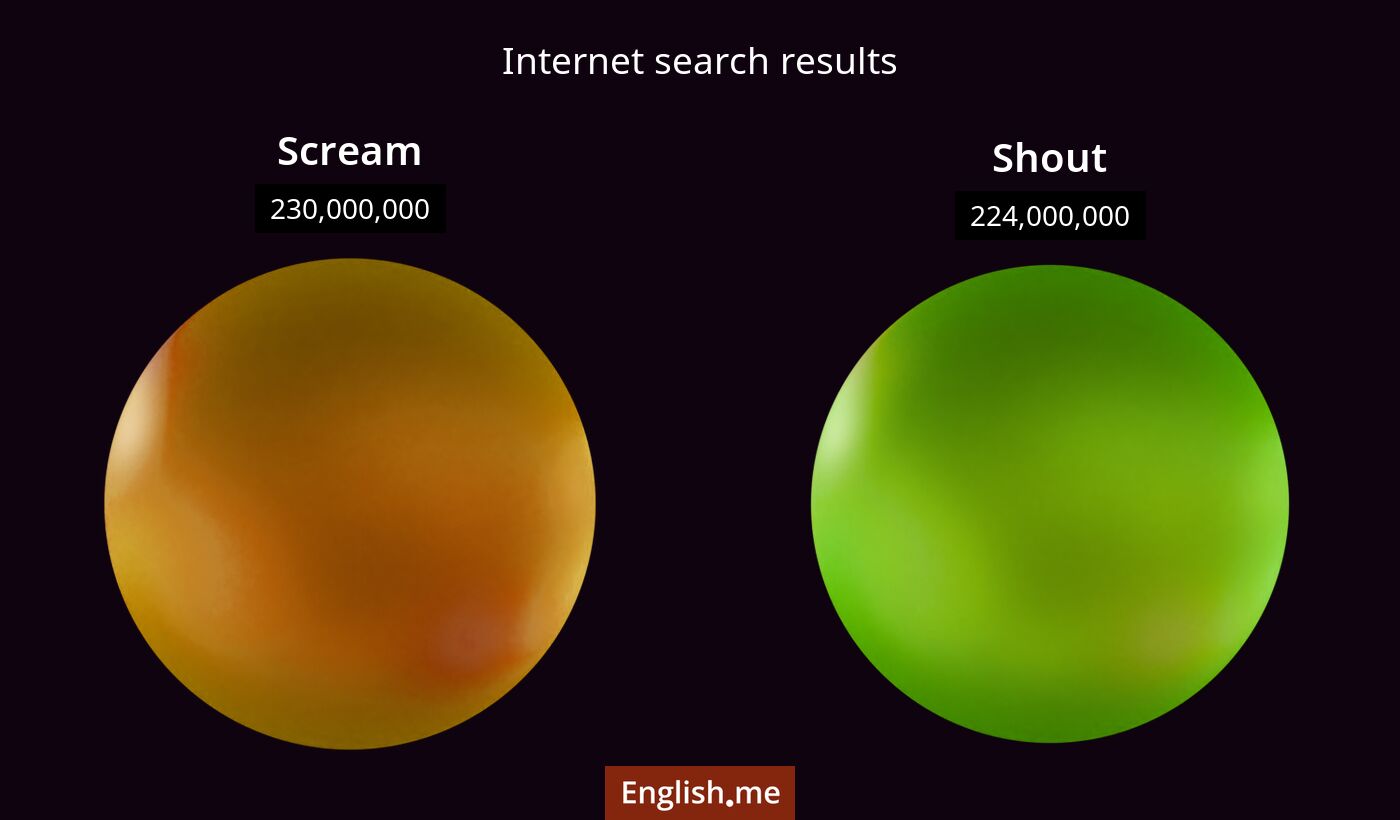Echoes of emotion: "scream" vs. "shout"
Reviewed and edited by  Anwar Kareem 10/11/2024, 10:01
Anwar Kareem 10/11/2024, 10:01
English.me team member

 What is similar?
What is similar?
Both "scream" and "shout" refer to loud vocal expressions and can be used to convey strong emotions like anger, fear, or excitement.
 What is different?
What is different?
The word "scream" often implies a higher-pitched, more intense sound usually associated with fear or pain, while "shout" generally refers to a louder, more forceful voice used for calling out or commanding attention. "Scream" is more often an involuntary reaction, whereas "shout" is usually intentional.
 Which one is more common?
Which one is more common?

 Examples of usage
Examples of usage
Scream- She let out a loud scream when she saw the spider.
- The scream of the siren could be heard throughout the city.
- He couldn't help but scream when the roller coaster plunged down the steep hill.
- He had to shout to be heard over the loud music.
- She shouted for help when she saw the accident.
- The coach shouted instructions to the players on the field.

 English
English español
español française
française italiano
italiano deutsche
deutsche 日本語
日本語 polski
polski česky
česky svenska
svenska Türkçe
Türkçe Nederlands
Nederlands